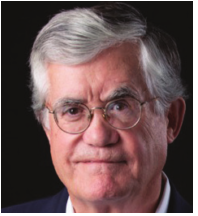EQUALITY
Years ago, Air Force Lt. Jeffrey Meinholtz, who had been kicked out of the service solely because he was gay, appeared one morning on the “Today” show. Host Katie Couric asked him point blank, “Lieutenant, when did you realize you were gay?” Smiling, he replied, “When did you realize you were heterosexual?” I have never forgotten that moment.
Sexual preference and orientation, he was telling us, are not a choice. They just are. He was not only right but brave enough to be honest. Several years back I spoke at a middle school one fall morning about mental health awareness. When my talk ended, many kids came up to me to share their own struggles. One seventh-grade boy approached me with tears running down his cheeks. “What’s wrong?” I asked. He opened up about school and about his young life. He told me how depressed and anxious he felt. “I am so ashamed,” he kept repeating between his sobs, “that I feel like this.”
I tried my best to persuade him that it wasn’t his fault. But I had no success. Finally, I said, “I think I know why you are so ashamed.” He looked up, hoping I had the answer. “Why?” he asked, still crying. “You’re ashamed because you made a bad choice when you decided to feel like you do.” He looked perplexed as his tears suddenly stopped. Looking directly into my eyes he exclaimed, “I didn’t choose it.” He was right, too — just like Lt. Meinholtz.
“Then why are you ashamed of something you never chose?” I replied. “What color are my eyes,” I asked him. “Brown,” he blurted out. “Do you think I chose that color? If I had been able, I would have chosen blue like yours, but I still see the same world you do.” He smiled, hugged me and ran off. Many of us still think mental health problems are a weakness, a character flaw or a choice. They are none of those. Over the last decade, especially, too many of us — from ignorance, fear and the misguided and the mean-spirited agenda of others — have begun to demonize and belittle the LGBTQ+ community. Some of that fear and hatred is evident in some of the out-of-state special interest and hurtful legislation circulating in our own Legislature.
The subtext to most of it seems to be, “Why are they like that?” “Why can’t they just choose to be ‘normal’ like the rest of us?” “Let’s make them feel badly and left out. That will teach them.” Is that who we are or want to be? I don’t know for certain, but I strongly suspect that many members of our Legislature have family and extended family living in the still-cruel shadows of “being different.” I have people in my universe who are.
You probably do, too. I believe in the fundamental decency and fairness of those we elect to legislative posts in New Hampshire, and am hopeful they will reject the right-wing agenda of those who fear “others different than themselves.” Once we start “separating,” it is a very slippery slope.
Some of the most creative and brilliant people in theater, the arts, the humanities, academia, sports, cinema and culture are “different” but nonetheless enrich our very existence.
We need to turn back ignorance and fear.
We can choose to embrace the “differences” we share, or let them divide us. Only one choice has integrity and decency as its guide. I hope our Legislature makes the right choice.
John T. Broderick Jr. is the former senior director of external affairs at Dartmouth Health and formerly served as chief justice of the New Hampshire Supreme Court.